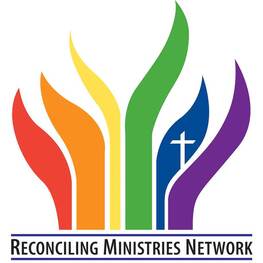“I’m so proud of him for holding to a biblical standard.”
The “him” in question was the seminary’s president. The comment tumbled out into an afternoon conversation amongst M.Div. students who were whiling away the time before an evening class began. We had been talking about nothing in particular when one of our colleagues—let’s call him “Peter”[1]—voiced his excitement that the seminary president had refused to revisit the institution’s policy on human sexuality, despite the fact that some donors had made public their intention to withhold further gifts out of protest. “I think it shows a lot of courage.” I wasn’t so sure. I had made my way to the seminary because of its commitment to urban issues. On the whole, however, I found myself to be less theologically conservative than most of my fellow students. Having embraced a conservative theology in my high school years, I had found it to be an uncomfortable fit by the time I entered seminary. Sometimes it felt to me that the “courage” to uphold a “biblical standard” was simply another way of refusing to consider new and uncomfortable ideas. The acceptance of LGBT people—and, more to the point, the integrity of their relationships with one another—was definitely one of those uncomfortable ideas. As a high school student who had awakened to the lively power of the scriptures, I had “known,” intuitively and without question, that there was nothing acceptable about any relationships outside of a heterosexual norm. It was a given; as far as I could tell, the Bible, reason, and nature all pointed to the sinfulness, the ultimate futility, and the self-annihilating logic of same-sex partnerships. But a Washington Post book review started to pull at the threads of my closed system, ultimately causing it to fray. Mel White, who had been active in the Moral Majority, was close to Jerry Falwell, and had ghost written the autobiographies of more than one notable evangelical personality, had recently published the story of his own life. And it was very much the story of his desperate attempts to escape the stark insistence of his sexual desires. Mel White was gay in a subculture that denied the reality and acceptability of that fact. The book review and accompanying interview addressed the multiple ways he tried to shed his desires and replace them with the purer desires of a heterosexual man. Prayer. Fasting. Therapy. Shock treatment. I’ll repeat that, since it seared itself into my consciousness: Shock treatment. Still, he found himself attracted to men, depressed and suicidal, unable to pray, fast, or even electrify the gay away. Confronted with this, gradually, I found myself asking: Am I insisting on calling unclean that which God has called clean? I could not, therefore, enter into Peter’s robust confidence about the nature of the dividing line between courage and cowardice. Neither, it turned out, could he. Peter completed seminary with excellent grades. He was, by all accounts, an impressive student and a skilled minister. He landed a comfortable pastorate shortly after graduation. He married a woman whom he loved. They had children together. All the while, however, a long-repressed aspect of his life dogged him, fought to loose itself from the stranglehold of his terrified psyche: his attraction to men. Like Mel White, he tried everything he could think of to escape his desires, their claim on his selfhood. They were, he believed, impure, sinful, and evil. They threatened everything he had built his life into. They had to be eradicated. And when he found himself unable to do so—unable to get rid of his desires, unable to withstand the self-loathing, unable to bear the crushing depression—he looked to something more definitive than prayer and therapy. He came frighteningly close to taking his own life. I learned this part of his story, truth be told, long after I had come to accept that LGBT people—and their relationships—are part of God’s riotously kaleidoscopic design for this world. What it sharpened for me, though, is the sense that concrete lives take precedence over abstract ideas. A theology, and the institutions built around it, that generates ineluctable impulses toward self-destruction in some of God’s people is a form of spiritual violence. A theology that inspires suicides is a theology crying out for the courage to change. It is time to stop calling unclean what God has called clean. [1] This is not, of course, his real name. He has written and spoken about his story—but in its specificity, it is his to tell. Insofar as it has played a part in the ongoing unfolding of my theological reflection, I tell it that way—in a manner that is complete even without a real name.
1 Comment
Simona
2/14/2015 01:32:45 pm
I agree, Kipp - lives should matter more than the rules - that was what Jesus thought, as well. It is not up to us to judge who will be loved or accepted by God - that is His job. We are all imperfect in our own way.
Reply
Leave a Reply. |
RUM-EPA BlogThis page includes written testimonials, articles, and podcast interviews with reconciling United Methodists in Eastern PA and beyond. Archives
September 2016
Categories |
 RSS Feed
RSS Feed
